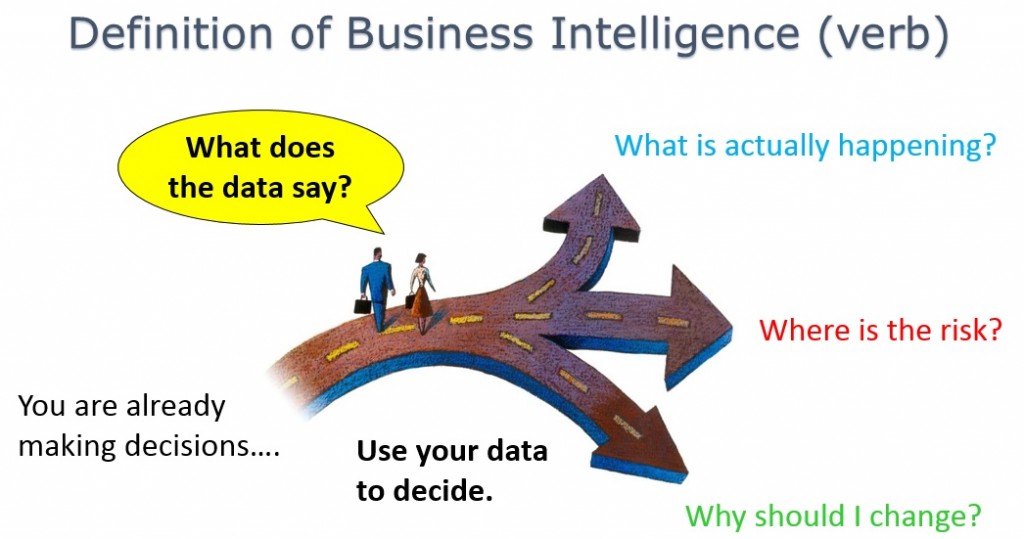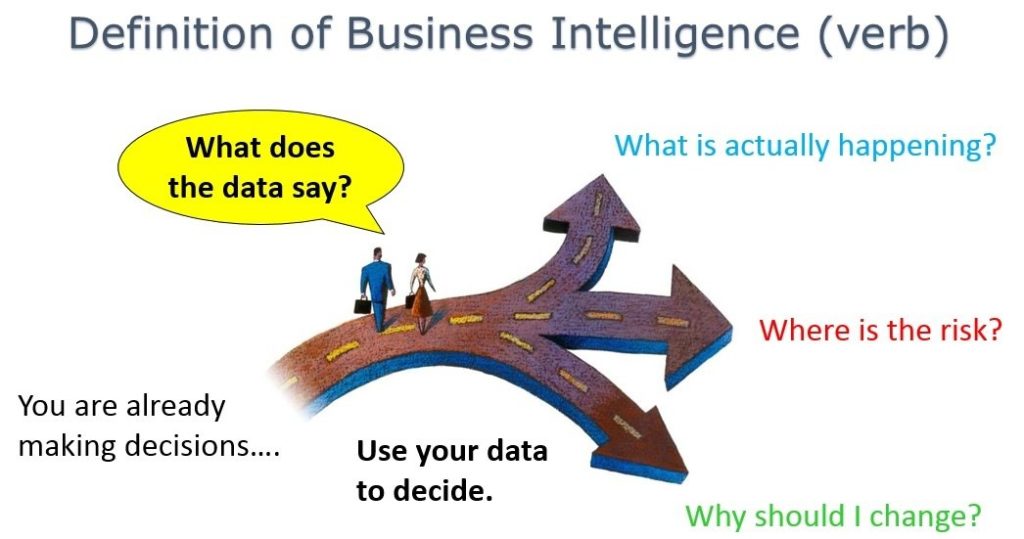Better Decision Making with Your Data
At DSK Solutions, we help associations use data to make decisions to create the future. Every association and nonprofit has a mission and a strategic vision. Associations can now use techniques and processes from the field of data analytics and business intelligence to make that vision a reality. We believe business intelligence is not “another project for staff to do,” but instead is a process to improve performance using data to make decisions. In other words it’s a way to do what you are already doing – making decisions – but making them faster and better, with less risk.
The Importance of Asking the Right Questions
Whether it is a tactical or strategic decision, many associations have historically relied on instinct, politics or history to make decisions. We think that data should be in this decision making mix. At DSK we like to say that your data is telling a story and once you know the story, you can change the ending. Because the quality of the answers we receive is correlated to the quality of the questions we ask, we suggest that the following questions are a good place to start when thinking about to use data:
- What products and services should we offer and how should we price them?
- What is the profile of our “ideal” member (by member type)?
- Do you know what is important to your member’s customers?
-
Which members are “at-risk” for not renewing and what can we do to prevent it?
-
How can we measure member engagement?
-
Where should we locate our events?
- How should we segment our customers (both members and prospects) for marketing?
- What marketing strategies work best for us?
Private industry is encroaching on the areas that used to be the primary domain of associations – content, networking and education. I believe this represents a threat to the future economic success of associations and nonprofits. The good news is that the time is right for associations to leverage the advancements that have been made over the past five years in the field of data analytics. Using data to make decisions will ensure that associations stay competitive and relevant.




